Ai Weiwei's London exhibition called off over Israel social media post
- Published
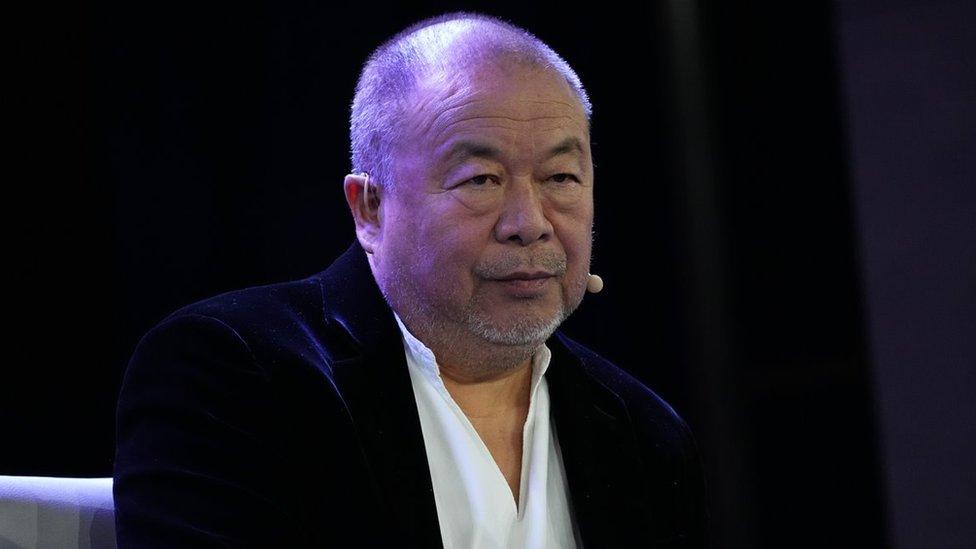
Ai Weiwei's new exhibition, Bricks as Mortars, was due to open on Wednesday
Artist Ai Weiwei has said his new exhibition has been cancelled after he posted comments on social media referencing the Israel-Gaza conflict.
The Chinese artist and activist's exhibition was due to open on Wednesday at the Lisson Gallery in London.
Ai, who has been vocal in his support for the Palestinians, said he was "committed to voicing my perspective".
The gallery said there was "no place for debate that can be characterised as anti-Semitic or Islamophobic".
Its statement said: "After extensive conversations with Ai Weiwei, following a comment he posted online, we together agreed that now is not the right time to present his new body of work."
His post, which has since been deleted, suggested that the "sense of guilt around the persecution of the Jewish people" had been transferred and held against the Arab world.
He also said the Jewish community has a strong influence in the media, finance and culture in the US, and that America's $3bn (£2.45bn) annual military support to Israel meant the two countries have a "shared destiny".
Ai said he had received a notification from the gallery that his exhibition was "effectively cancelled due to my tweet".
A representative for the artist said a further three exhibitions - at the Lisson Gallery in New York and the Galerie Max Hetzler in Paris and Berlin - had also been called off.
Ai said he had replied to another user who had asked him a question, and he had "attempted to be objective and neutral without moral judgment, accusations, or evaluation of human actions".
He also said that as an artist, he was only interested in free expression, not "seeking correct expression".
However, he continued: "When discussing correctness or wrongness, I must be wrong. I have always regarded free expression as a value most worth fighting for and caring about, even if it brings me various misfortunes...
"Incorrect opinions should be especially encouraged. If free expression is limited to the same kind of opinions, it becomes an imprisonment of expression. Freedom of speech is about different voices, voices different from ours."
In a separate statement, he said: "If culture is a form of soft power, this represents a method of soft violence aimed at stifling voices.
"It's not directed solely at me but at the broader culture of a society lacking a spiritual immune system. When a society cannot withstand diverse voices, it teeters on the brink of collapse."
In its statement, the Lisson Gallery said "all efforts should be on ending the tragic suffering in Israeli and Palestinian territories, as well as in communities internationally".
It added: "Ai Weiwei is well-known for his support of freedom of expression and for championing the oppressed, and we deeply respect and value our longstanding relationship with him."
Who is Ai Weiwei?
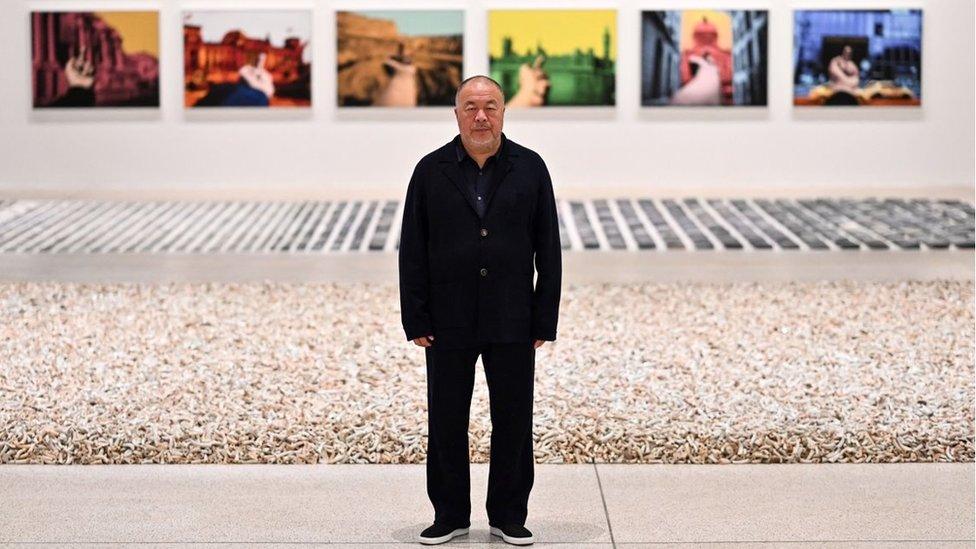
The 66-year-old is well known for his political commentary and activism on human rights issues
Ai Weiwei is a contemporary artist, documentarian and activist who found global prominence after being openly critical of the Chinese government's stance on democracy and human rights.
He was born in Beijing in 1957, and grew up in labour camps in the north-west of China after his father, Ai Qing, an anti-establishment poet, was exiled.
In 2011, he was arrested in Beijing for "economic crimes", and detained for 81 days without charge.
Ai is one of China's most vocal political commentators and makes use of Chinese art forms to display political and social issues.
He is also a well known advocate for human rights and has vocally expressed support for the Palestinian people.
In 2016 he filmed a documentary, Human Flow, in Gaza about the global refugee crisis.
Related topics
- Published29 September 2020
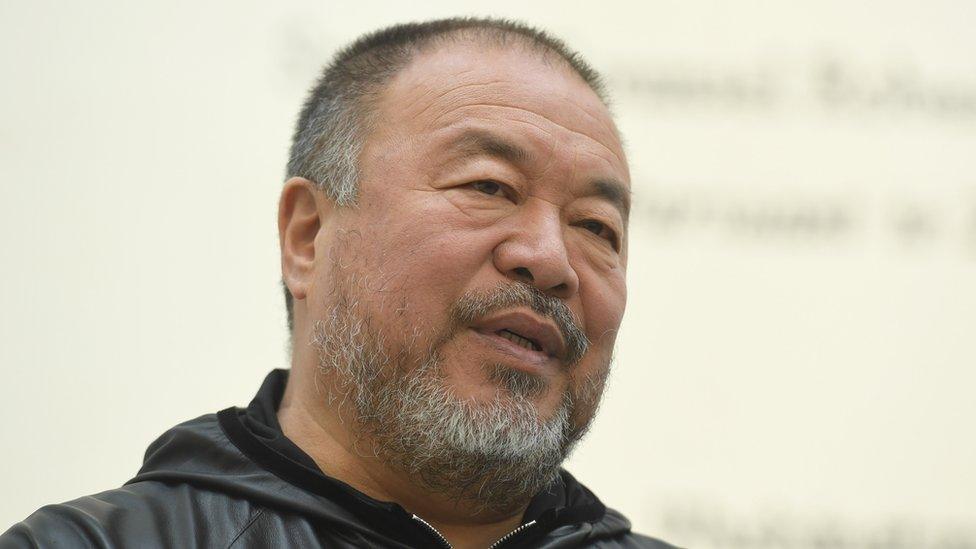
- Published18 February 2019
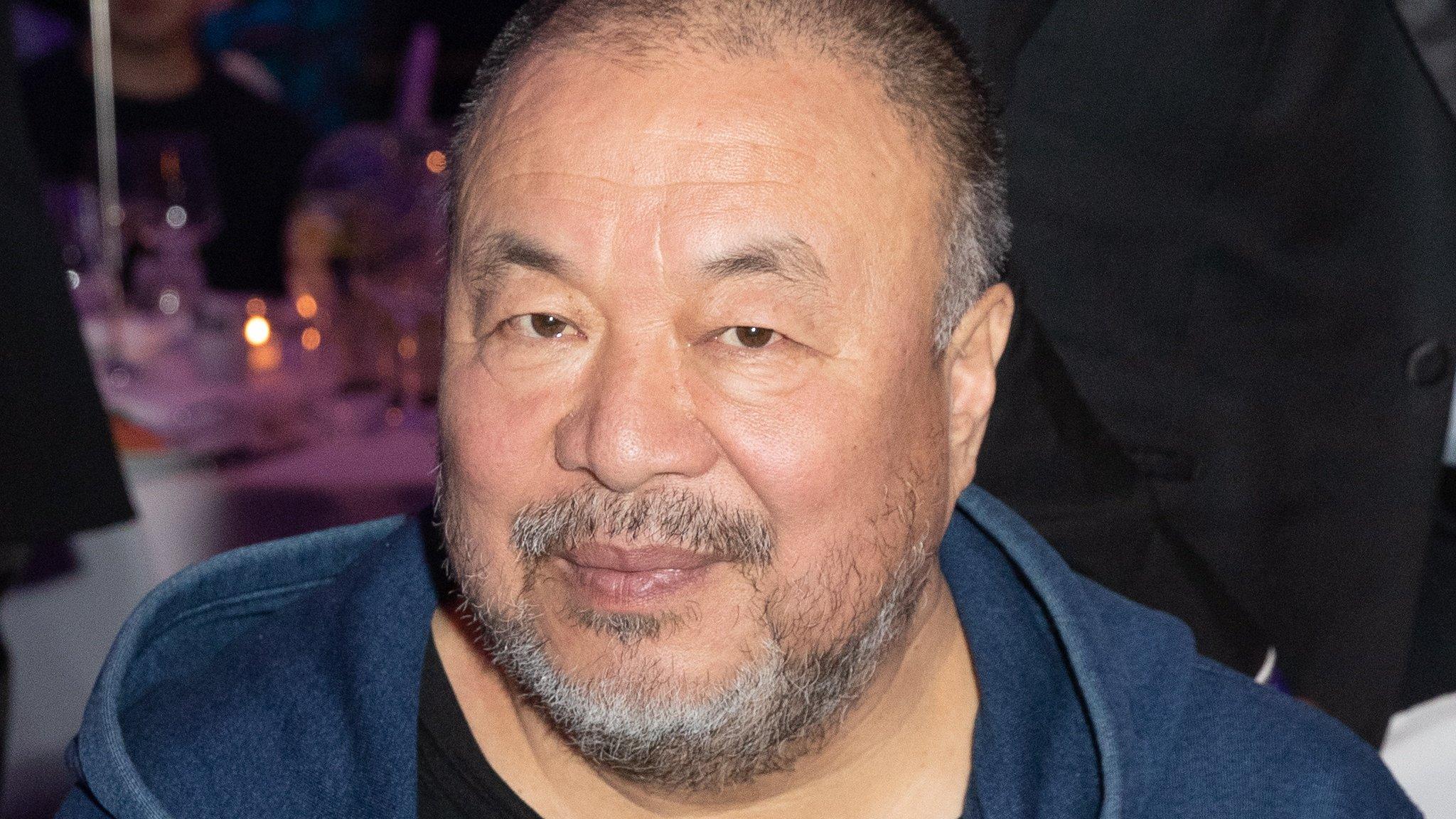
- Published4 August 2018
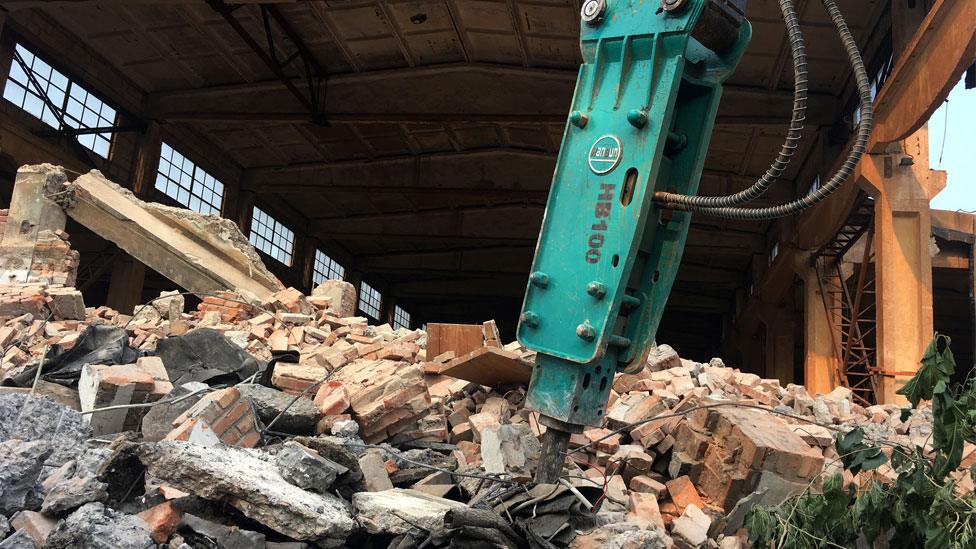
- Published1 February 2016
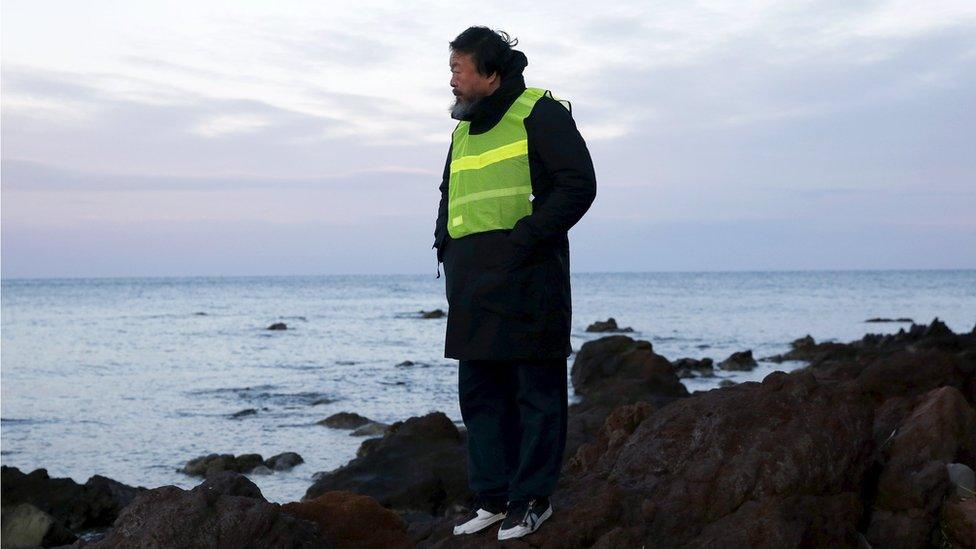
- Published13 January 2016
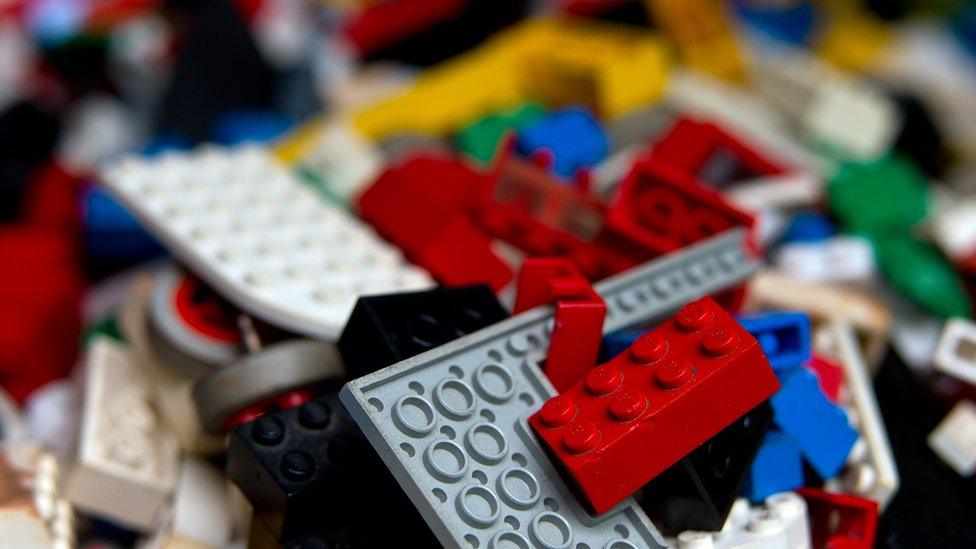
- Published15 September 2015